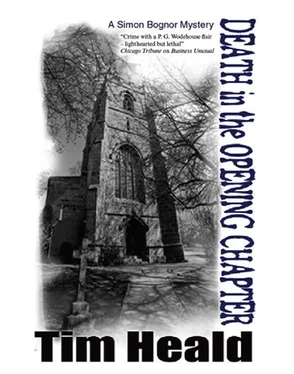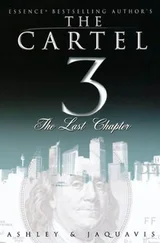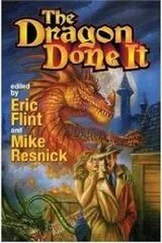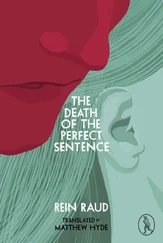Tim Heald - Death in the opening chapter
Здесь есть возможность читать онлайн «Tim Heald - Death in the opening chapter» весь текст электронной книги совершенно бесплатно (целиком полную версию без сокращений). В некоторых случаях можно слушать аудио, скачать через торрент в формате fb2 и присутствует краткое содержание. Жанр: Криминальный детектив, на английском языке. Описание произведения, (предисловие) а так же отзывы посетителей доступны на портале библиотеки ЛибКат.
- Название:Death in the opening chapter
- Автор:
- Жанр:
- Год:неизвестен
- ISBN:нет данных
- Рейтинг книги:5 / 5. Голосов: 1
-
Избранное:Добавить в избранное
- Отзывы:
-
Ваша оценка:
- 100
- 1
- 2
- 3
- 4
- 5
Death in the opening chapter: краткое содержание, описание и аннотация
Предлагаем к чтению аннотацию, описание, краткое содержание или предисловие (зависит от того, что написал сам автор книги «Death in the opening chapter»). Если вы не нашли необходимую информацию о книге — напишите в комментариях, мы постараемся отыскать её.
Death in the opening chapter — читать онлайн бесплатно полную книгу (весь текст) целиком
Ниже представлен текст книги, разбитый по страницам. Система сохранения места последней прочитанной страницы, позволяет с удобством читать онлайн бесплатно книгу «Death in the opening chapter», без необходимости каждый раз заново искать на чём Вы остановились. Поставьте закладку, и сможете в любой момент перейти на страницу, на которой закончили чтение.
Интервал:
Закладка:
‘Let me say,’ and here the bishop drew himself up to his full height, which though an inconsiderable five foot four in bare feet, was pretty intimidating when aided by the pulpit and the mitre, ‘once and for all, that those rumours are poppycock, balderdash and completely inappropriate. Not only are they false rumours, but the expression of any seditious thoughts regarding our late brother, nay father, in Christ are, ipso facto, bad, evil and naughty. It is bad to venture a false opinion, but it is even worse, in this instance, to venture an opinion at all. I ask, indeed, I command you, to keep any thoughts about the death of the Reverend Sebastian Fludd. I cannot, of course, prevent you from having thoughts. Nor can I prevent you from conveying such thoughts to Sir Simon, but as far as the Lord God Almighty is concerned, such thoughts should be kept to yourselves where they truly belong.’
The Bognors had been doing their best to follow what, for want of a better word, should be described as ‘reason’, even though both of them felt the bishop was short of logic, and that he was falling back on a position which even mild agnostics such as they believed to be dubious.
Even Bishop Ebb showed evidence of coming to an end of his sermon, if not his tether, for, quite suddenly, he snapped into a peroration. ‘So,’ he intoned, ‘I have two messages. One is a message of warning, and that concerns the death of your pastor and his unexpected removal from this earth. The other concerns the Fludd Festival of Arts and Literature, and expresses the hope that you will enjoy the festival and that much good may come of it.
‘And, in conclusion, I would tell you that both the warning and the hope are to be respected and obeyed, for as Saint John the Divine tells us at the very beginning of his gospel, “In the beginning was the Word and the word was with God and the Word was God”.
‘And now, in the name of God the Father, God the Son and God the Holy Ghost, Amen.’
So saying, he paused again, beamed at the congregation, made the sign of the cross and tripped majestically down the steps of the pulpit, as the two lay-readers managed to announce that the members of the congregation should rise and sing the hymn ‘Bread of Heaven’ to the tune of Cwm Rhondda. Number 296 in Hymns Ancient and Modern, the 1950 Revised Edition. ‘Guide me, O thou Great Jehovah, pilgrim through this barren land.’ This was the traditional offering at Welsh rugby internationals in Cardiff and on the eve of the Fludd Festival in St Teath’s Church, Mallborne. As such, it was a signal that all was right with the world, and it was, as Sir Branwell had hoped, business as usual.
And yet, it wasn’t.
Outside, on that crisp spring evening, as the churchgoers milled around the Great West Door of their place of worship, there was a buzz of speculation which the words of the Lord their God and of his representative in the diocese had been unable to quell.
‘I always thought there was something odd…’ was the beginning of one conversation.
‘Say what you like, but…’ was the beginning of another.
‘So, who do you think did it?’ was the question which began a third.
This was not at all what the bishop had hoped to achieve as he thundered forth from the pulpit. His voice was evidently no more than tinkling brass and his message lay forlorn and unheeded. It might as well never have been uttered for all the good that it had done, and the bishop, passing among his flock flapped his ears and was duly dismayed.
Eventually, he found Sir Simon and Lady Bognor conversing with their hosts Sir Branwell and Lady Fludd.
‘Over to you, dear boy,’ said the Rt Reverend Ebenezer Lariat, rubbing his hands with a display of enthusiasm which was more apparent than real. ‘Over to you, dear boy!’
FIFTEEN
They weren’t at all sure about the snail porridge, which was greyish and tasted of, well, porridge and snails. It was followed by baked haunch of emu with a mousseline of apricots, and hake cheek and sprouts a la Fludd; finished off by fudge fondue with grape nuts on a whitebait foam. Bognor thought the emu haunch was delicious, though he wasn’t sure about the rest. Most people weren’t sure about the emu either. Gastronomic certainty was a wonderful thing, and at least at the manor you knew where you were. Here, at the Two by Two, you could have been anywhere except where you actually were, which was middle England.
Before Gunther, the food at the Fludd Arms was more predictable and in a sad way perhaps more apt. This evening’s was at the cutting edge, cooked by a chef at the acme of his profession. The fact that most of the diners thought it inedible was, frankly, neither here nor there. It would play well on TV and in the newspapers and magazines. It was the sort of scoff that would raise the Fludd Lit Fest in to the front rank, alongside Hay-on-Wye and Cheltenham.
This was the thinking of the public relations department at the Daily Beast who sponsored the festival, and whose literary editor would be arriving with selected ‘jawnalists’ some time to tomorrow. Sir Branwell drew the line at the Beast and its sponsorship; refused to have them in the house; hadn’t realized that Gunther Battenburg was their idea until too late. Actually, considering that Gunther was some sort of kraut and produced disgusting, overpriced and pretentious food, the Fludds thought he was quite a good egg.
The Bognors were split up, but were at quite an important table. The tables were round and there were eight diners at each. The Bognors were with Brigadier and Mrs Blenkinsop, Vicenza Book and the bishop, and Martin Allgood and someone from his publishers who was described as his ‘publicist’, but who seemed to know little or nothing about books, whether by Allgood or anyone else, and whose high cheekbones, pert breasts and generally gamine appearance, suggested that she was his girlfriend and had no literary pretensions. Literary pretensions were, as far as Bognor could see, rather old hat as far as cutting edge festivals and publishers were concerned. Several times he had heard festival organizers and publishers say that their profession (always a profession never a job, nor a trade) would be quite agreeable, if it were not for authors. He had even heard TV producers debating how they could avoid actually having to read books before deciding whether they should be turned into some kind of visual treat. The bishop may have thought that the word was paramount and the Bible a best-seller, but this was a view not widely shared by those in the know, at the sharp end, who actually determined what the rest of the world – poor saps – actually read.
The point of the round tables was that none should be seen to be more important than others. It was a sort of Orwellian conceit, for it was perfectly obvious that, even if all tables were equal, some were more equal than others. The Bognors’ was, happily, one such and, once the bishop had said grace (the usual Anglo-Saxon), those who had made it to tables obviously above the salt looked a little smug while sipping their elderflower cocktails, and those who found themselves just as obviously below, looked predictably sour.
‘Jolly sound sermon, Your Grace,’ said Brigadier Blenkinsop, leaning across the bowl of valerian and sweet peas which formed the centrepiece of each table. ‘Just the ticket. First class.’
Ingratiating wanker, thought both Bognors, smiling at him.
The bishop looked slightly uncomfortable and asked if anyone had heard the latest test score.
Bognor said, truthfully, that the last he had heard, England were 125 for nine, although the last pair had put on more than thirty.
‘Sounds about right,’ said Ebenezer, who really was keen on the game, still an episcopal characteristic, though not a mandatory one. Time was when the country was full of cricketing clergy. Now, however, there were precious few clerics, and very few of them had either the time or the inclination for cricket. Not like the days of Prebendary Wickham of Martock, who kept bees and the Somerset wicket.
Читать дальшеИнтервал:
Закладка:
Похожие книги на «Death in the opening chapter»
Представляем Вашему вниманию похожие книги на «Death in the opening chapter» списком для выбора. Мы отобрали схожую по названию и смыслу литературу в надежде предоставить читателям больше вариантов отыскать новые, интересные, ещё непрочитанные произведения.
Обсуждение, отзывы о книге «Death in the opening chapter» и просто собственные мнения читателей. Оставьте ваши комментарии, напишите, что Вы думаете о произведении, его смысле или главных героях. Укажите что конкретно понравилось, а что нет, и почему Вы так считаете.












